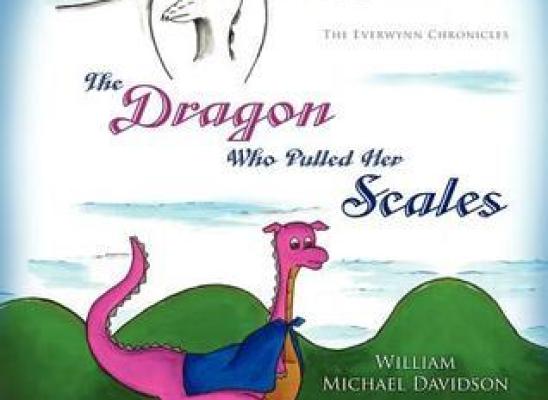Having Kids When You Have Trich: Is It Too Risky?
Online test
Find out the severity of your symptoms with this free online test
When you think about having kids, it’s normal to think about what that life might be like. If you’re living with a medical or mental health disorder and considering having a family, the worry often turns to the disorder and what that could mean: “How did I get it? Could I pass it on to my child?”
If you’re living with trich and considering having kids, it’s probably crossed your mind more than once about what it could mean if you decided to have a child. And there’s probably no shortage of people in your life who have weighed in and given you their opinion: Do it. Don’t do it. Why take the chance? It’s enough to scare the wits out of you!
Trichotillomania is an obsessive-compulsive related disorder characterized by repetitive hair pulling that results in significant hair loss and impacts a person’s functioning. It’s a disorder that can also be associated with anxiety, depression, and other mental health issues. There is no “cure” for trich but it is highly manageable with treatment.
Still, with all that is known about trich, there is just so much that we don’t know. What exactly causes it? Just how, or even IF, it can be passed on is still not well-understood either. Trich, like many other mental health disorders, is thought to have a genetic component but as with most disorders, genetics are often only one piece of the picture. Still, it is a reality and something to be mindful of when making your decisions.
Trich and Genetics: It’s Complicated
Trich occurs in about 1% to 3% of the population although estimates vary widely. While its exact cause is not known, evidence suggests that whether someone develops trich is based on a number of factors. Biological factors such as hormonal or neurochemical imbalances as well as brain abnormalities have been suggested. Because trich is thought to be a self-soothing response to high stress or anxiety, experiencing a highly stressful life event has been suggested as a possible cause. Even other sensory experiences that are seemingly benign such as itchy eyes or scalp have been mentioned as possible triggering factors.
Like many other mental health disorders, a person’s genetics is also thought to play a role. Familial and twin studies have found a higher incidence of trich where one or more family members has trich. One unique family study, in particular, looked at heritability across three generations of male family members and found a possible familial link.
One of the few known twin studies found that out of 34 twins studied, 38.1% of monozygotic (identical) twins had trich while 0% of dizygotic (fraternal) twins. This is important because monozygotic twins are the result of a single egg splitting in two after fertilization, which means that they are genetically identical. Dizygotic twins are the result of two different eggs being fertilized at the same time which means that they have completely independent genomes, just like regular non-twin siblings. So, it’s clearly more than just genes.
Science has turned to molecular genetics to try and understand the building blocks of trich. In particular, a rare variation of the gene SLITRK1 has received a lot of attention as being a possible factor in the development of trich. SLITRK1 variation seems to be associated with Tourette’s and OCD-spectrum disorders although the relationship isn’t entirely clear. A recent Duke University study looked at 44 families where one or persons had trich. They found that certain mutations in SLITRK1 accounted for about 5% of the trich cases. Other factors, including molecular proteins and neural pathways are emerging as key players too.
So what does all this mean? In short, it means that genetics are not the only factor that determines whether or not someone develops trich. Even within families and among twins, the presence of a family member with trich doesn’t make developing trich inevitable. So if you have trich, it does not mean that your child will too.
What Do Others Say?
The question about whether to have kids is something that comes up in trich-focused groups and online discussions. As you might expect, opinions run the gamut from no way to absolutely not worried, and everything in between.
The biggest worry seems to be somehow passing the disorder on to their child. For some, the worry is genetics. For others, there is a concern about learned behavior. The fact is, trich develops in response to things like temperament, environment, stressors, and more. Just because you have trich doesn’t mean your child will simply follow in your footsteps.
Despite the concerns, the majority of those who weigh in seem to support the idea of having children. They are realistic about the risks as well as open to the treatments available to manage the disorder if needed. There is a sentiment that no situation is perfect and the joy outweighs the risk.
So what should you consider if you have trich and are thinking about children? The biggest factor seems to be readiness. Are you in a healthy place physically and emotionally to deal with all that a child brings? If you have doubts or aren’t sure what ready is for you, it’s ok to reach out to a professional to explore the issue more in-depth.
At the end of the day, the decision of whether or not to have a child is a personal one. Only you know your heart and what you are prepared to face. The right answer is the one that is right for you.
References
1. Chatterjee, K. (2011). The genetic factors influencing the development of trichotillomania. Journal of Genetics, 91(2), 259-262. https://www.ias.ac.in/article/fulltext/jgen/091/02/0259-0262
2. Ramot, Y., Maly, A., Horev, L., & Zlotogorski, A. (2013). Familial trichotillomania in three generations. International journal of trichology, 5(2), 86–87. https://www.ncbi.nlm.nih.gov/pmc/articles/PMC3877480/#ref8
3. Novak, C. E., Keuthen, N. J., Stewart, S. E., & Pauls, D. L. (2009). A twin concordance study of trichotillomania. American journal of medical genetics. Part B, Neuropsychiatric genetics : the official publication of the International Society of Psychiatric Genetics, 150B(7), 944–949. https://pubmed.ncbi.nlm.nih.gov/19199280/
4. Lamothe, H., Baleyte, J. M., Mallet, L., & Pelissolo, A. (2020). Trichotillomania is more related to Tourette disorder than to obsessive-compulsive disorder. Revista brasileira de psiquiatria (Sao Paulo, Brazil : 1999), 42(1), 87–104. https://www.ncbi.nlm.nih.gov/pmc/articles/PMC6986481/
5. Live Science. (2006, September 29). Gene found at the root of hair-pulling disorder. Retrieved from https://www.livescience.com/1041-gene-root-hair-pulling-disorder.html
6. Yeomans, A. (n.d.). FAQ for parents. Retrieved from https://www.bfrb.org/learn-about-bfrbs/tools-a-info-for/for-parents/parent-faq#general_adult
Online test
Find out the severity of your symptoms with this free online test
Start your journey with TrichStop
Take control of your life and find freedom from hair pulling through professional therapy and evidence-based behavioral techniques.
Start Now



